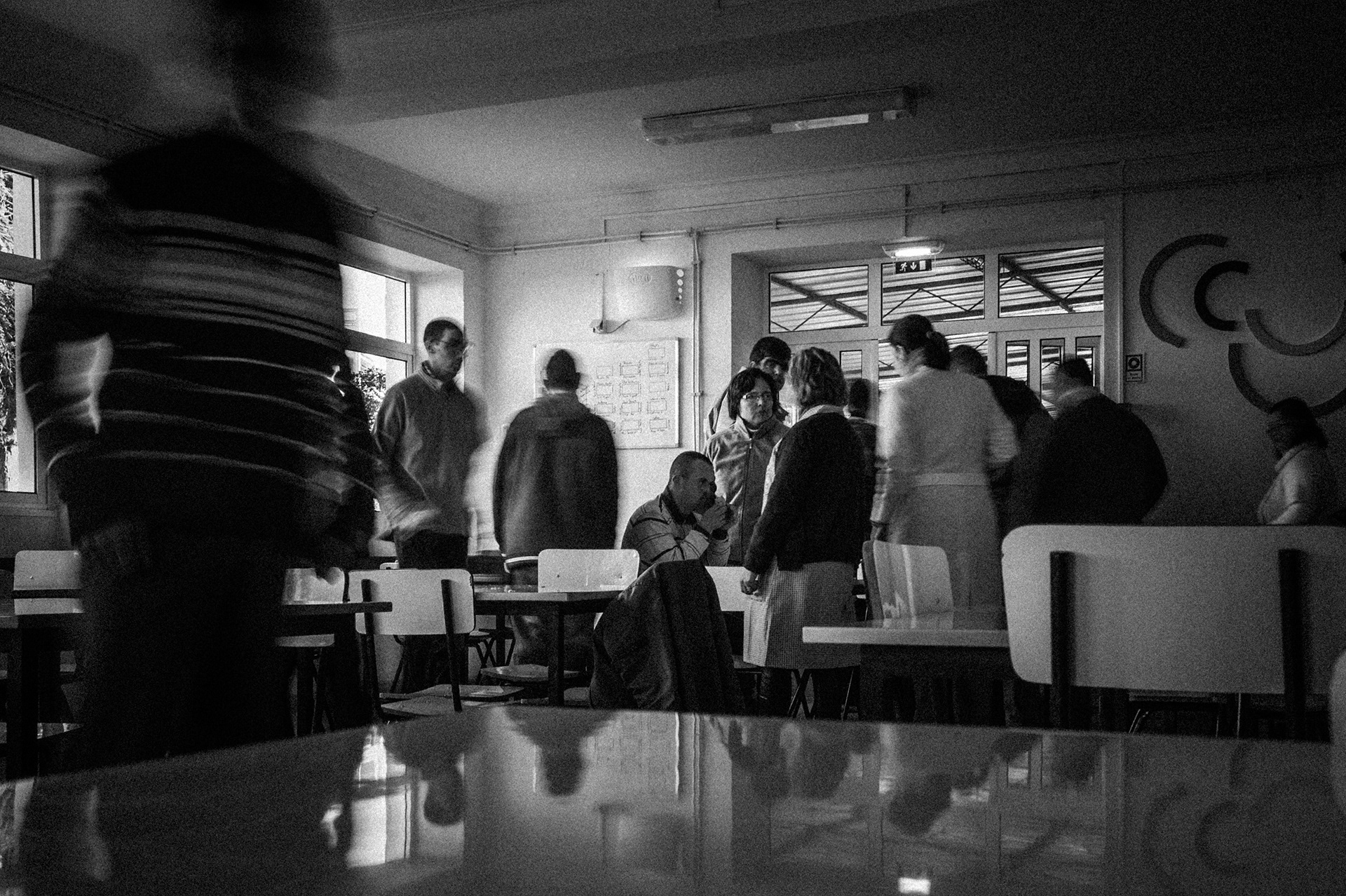
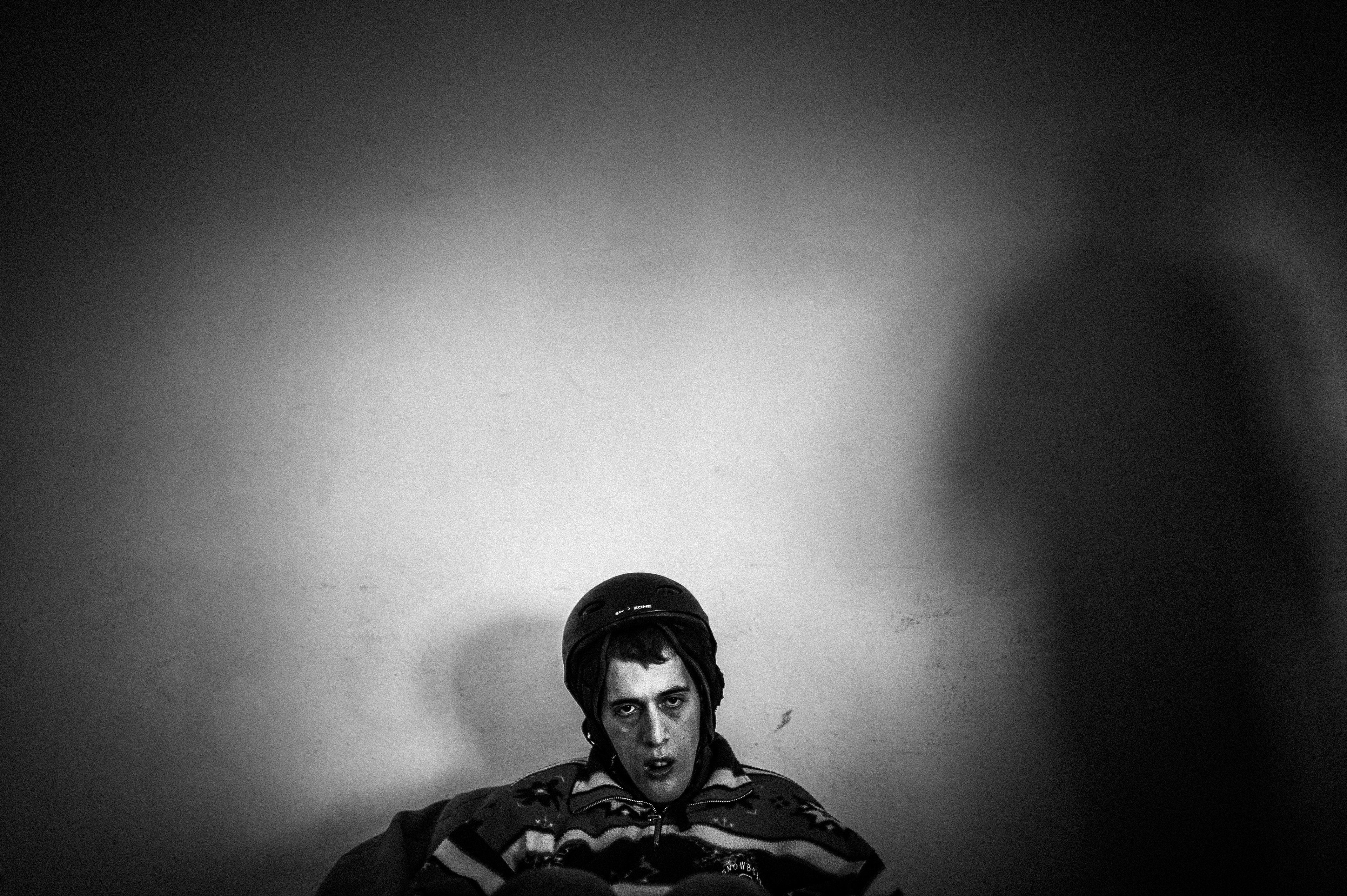
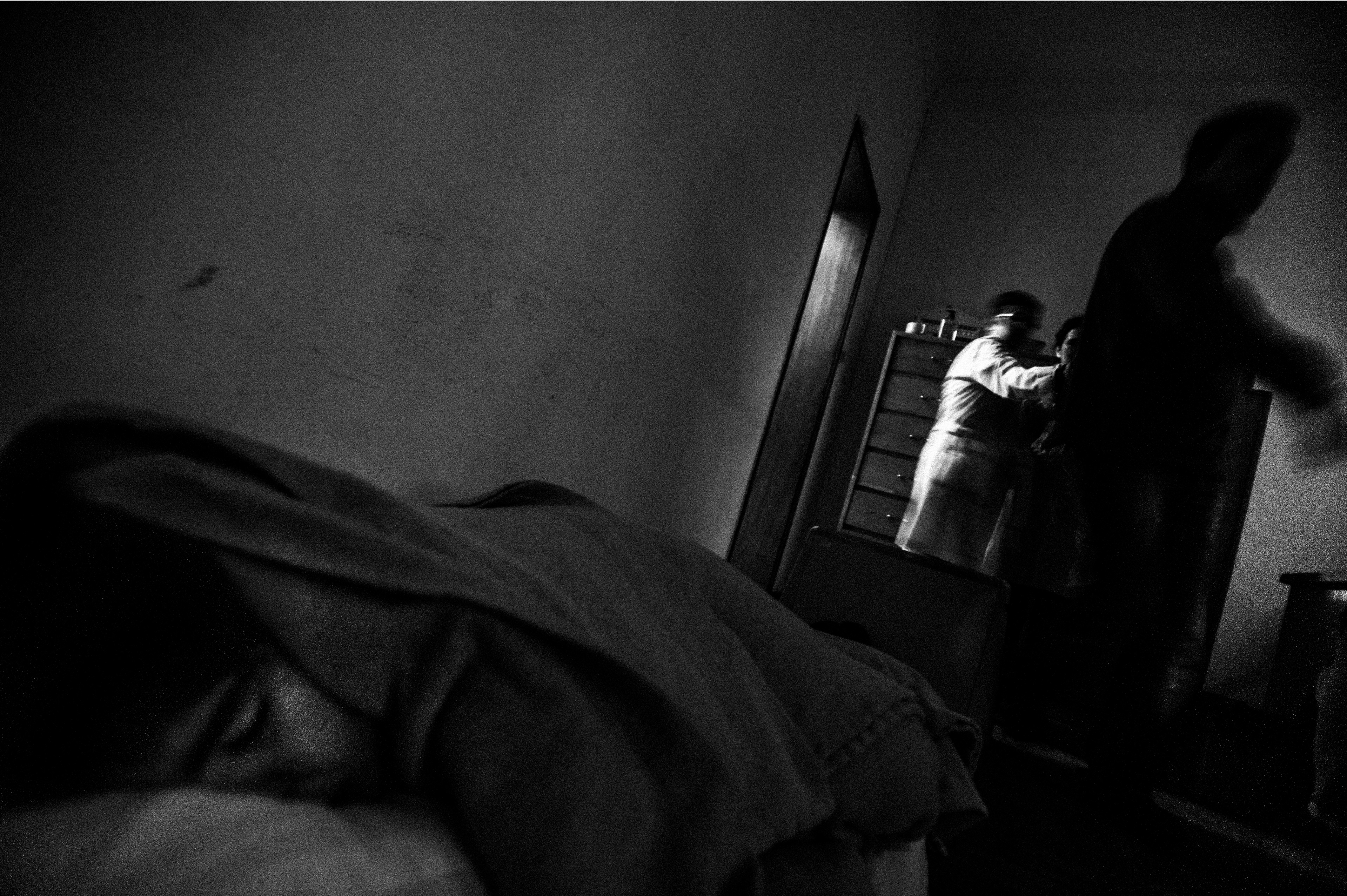
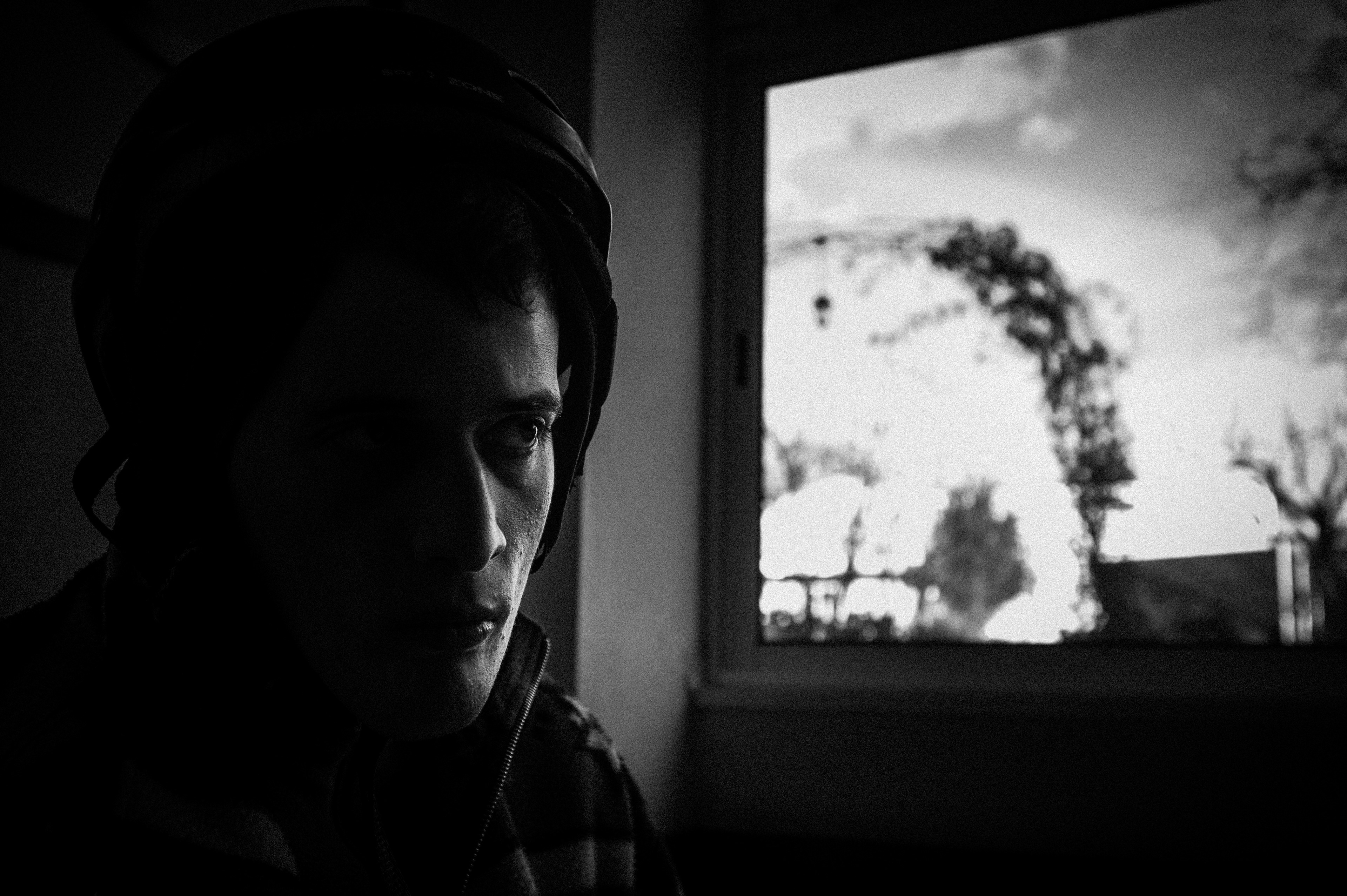
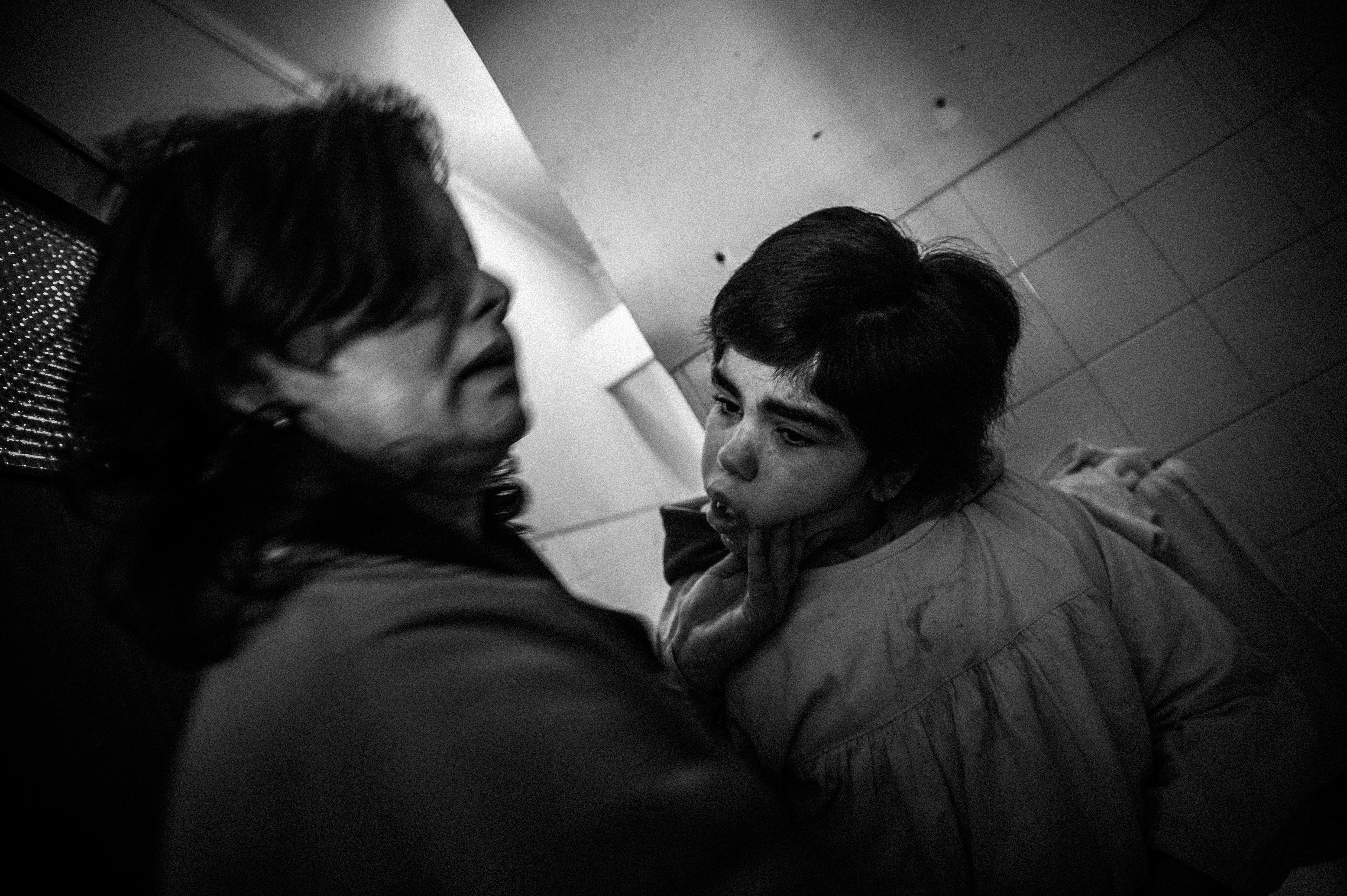
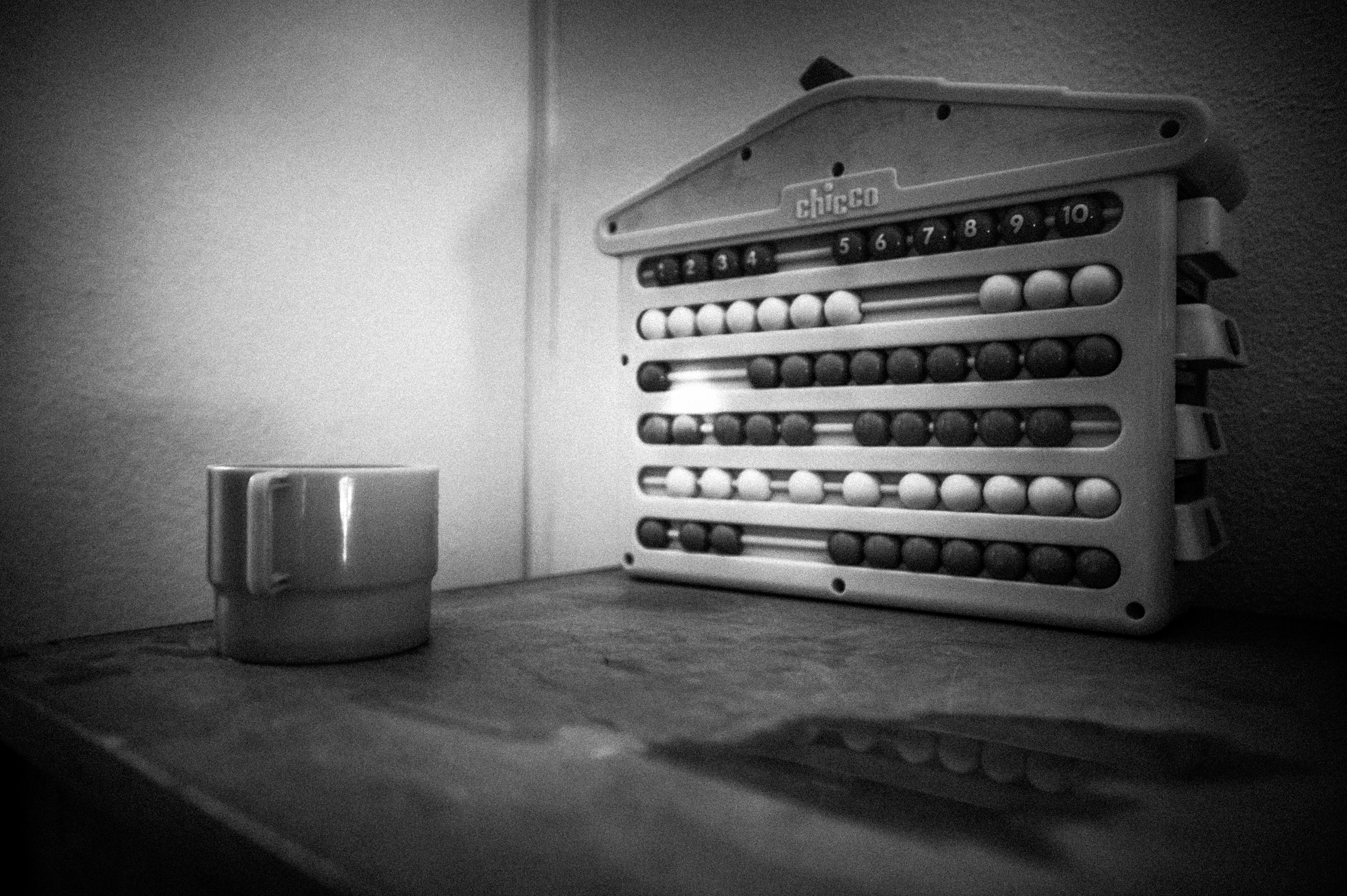

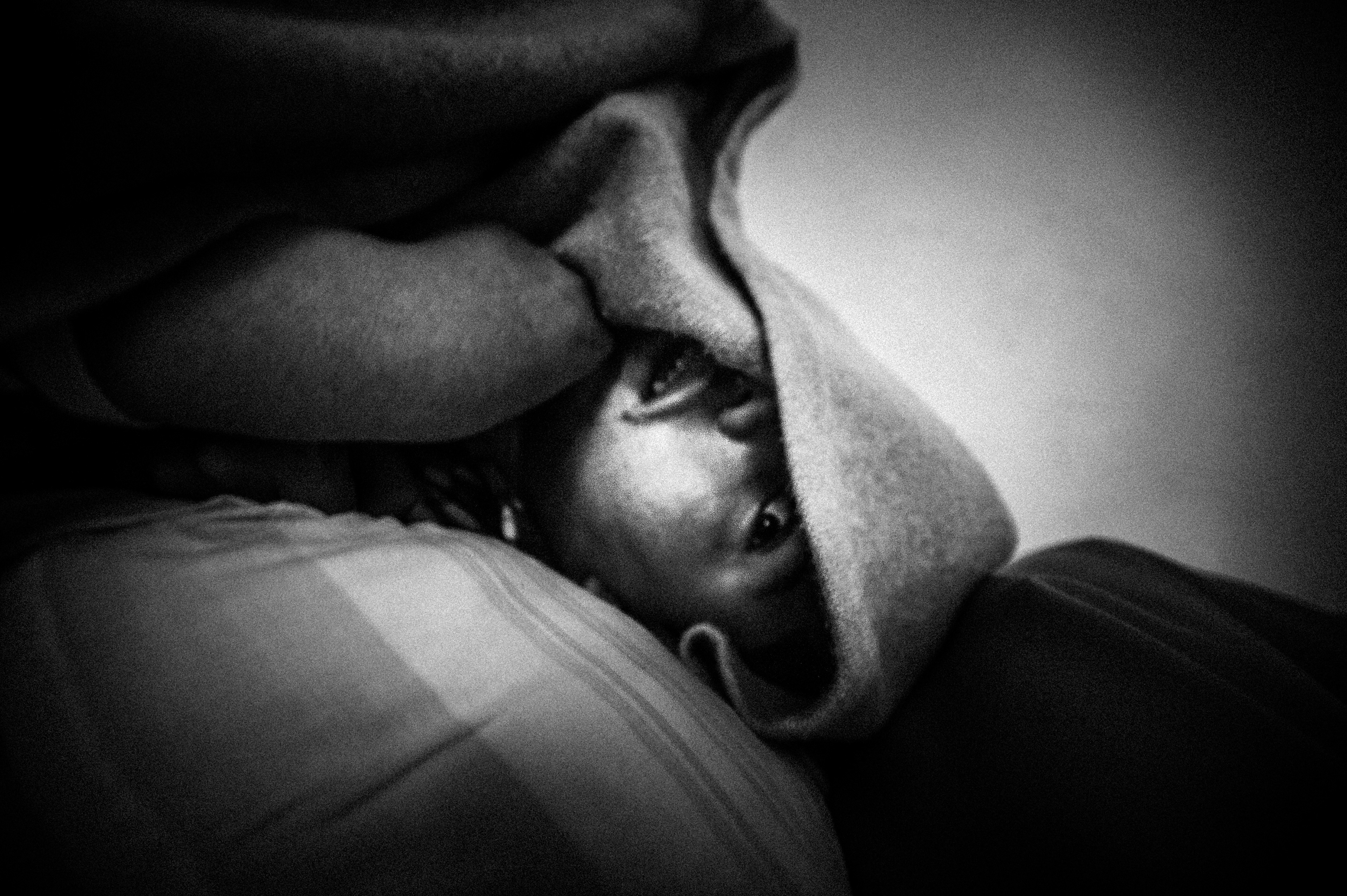
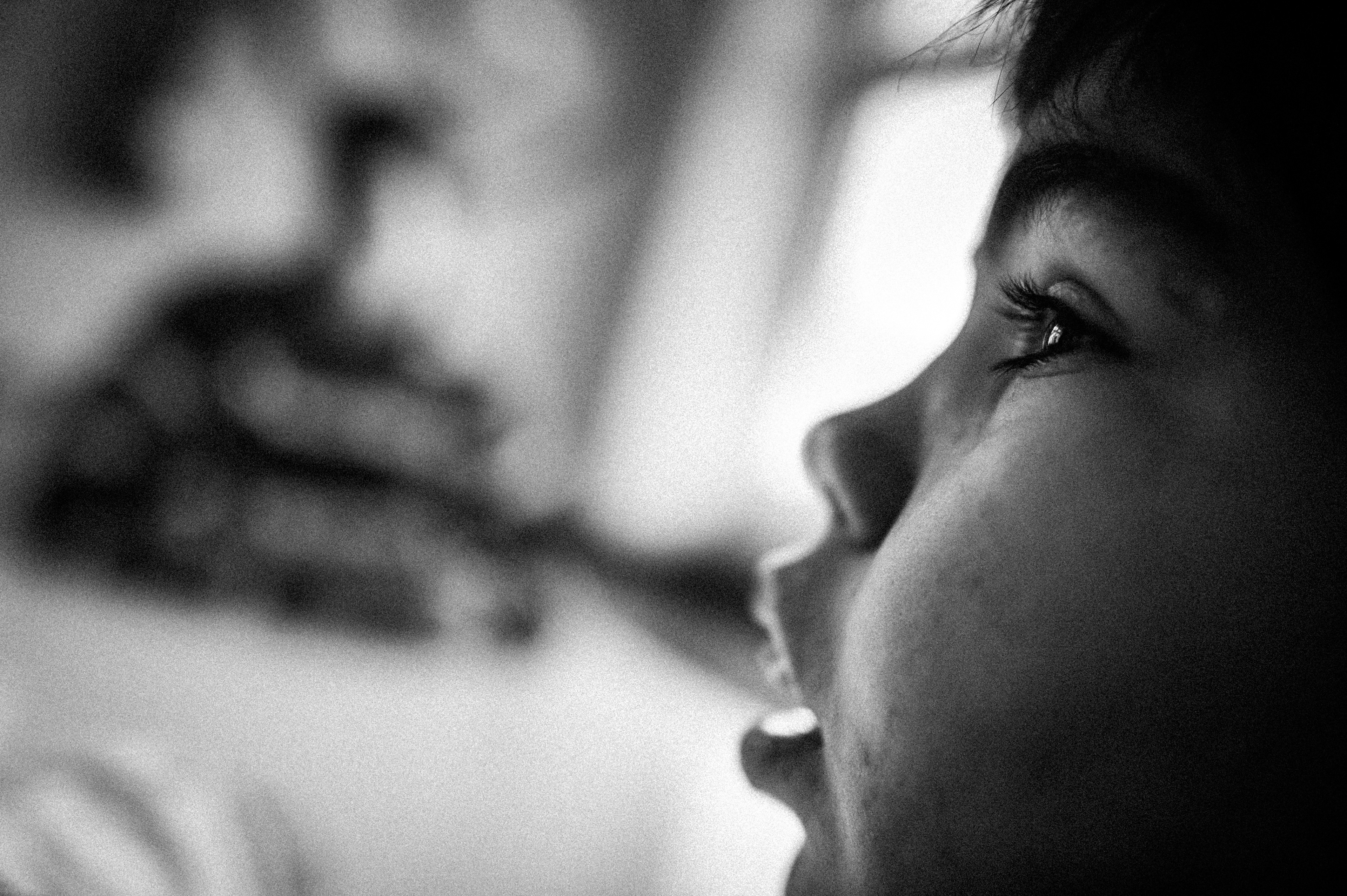
Looking at them whilst taking an afternoon nap, no one would guess the worlds that are about to awaken. But accessing those worlds is yet another story, and one that nobody has managed to tell. In their best friend’s words, a nurse who has accompanied them five days a week since birth or almost, ‘How I would love to penetrate into those worlds, understand them.’ She says it with a nostalgic look on her face, like a scientist who battles for an important discovery for the good of humanity, however aware that he will most certainly not have the privilege to find it during his lifetime. Impossible. It doesn’t matter how many hours, days, months or even years spent beside them, moments of mutual communication with those who embody severe mental disability, are extremely scarce. Every human being can become mentally ill; it is something latent and therefore represents a frightening reality. But the real abyss takes place in the womb: mental disability. Earlier on, parents realise their child is not like the other babies, but few are those who stand by their protégé, filled with courage to embark on an extremely difficult voyage of love, pain and learning. There are still those who feel ashamed and mistreat their son or daughter, further aggravating his weakened state. The darkness of room 5 dilutes into light as the blinds are pulled up. It’s time to wake up for their usual daily snack in the cafeteria. In reality, only one of the 3 patients in room 5 is sleeping. It’s a young woman, the one who inhabits the farthest galaxy of all. The other two young men do not sleep; they simply enjoy the gloomy comfort underneath their blanket. They cover themselves completely and just lay there, not sure if asleep or awake, as if everything were fine under that blanket in the dark, and so there they lay… Everything in their routine lives is an adventure, as it requires requires a tremendous amount of effort. Like inhabiting the top of the Himalayas or the Andes, where the lack of oxygen results in any small action being the most impossible of missions. Only those who live with them, only those who want to see from up close understand what life is in its full perspective, reflected in all its facets: the horror and the beauty, the most complete happiness and the most isolated loneliness. To those who watch from afar as if they were characters in a surrealist film, it’s comforting to know that these mental disable people aren’t sensitive to neither cold nor pain. And if they feel it, they do not complain. ‘To learn to use public transportation is the best inheritance parents can leave them with’ says the nurse. In Portugal there is an extreme lack of sensitivity and knowledge generated by a non-existent education on this reality, which is also part of our society. People do not know what it is and they do not care. It’s not my problem neither it is my business. Tough luck. However, a country that claims itself as advanced and civilized fails in the most basic rule of that so preached civilization: social inclusion, to say ‘no’ to pre-concepts. Of course for a real evolution of civic consciousness to take place is necessary to invest in new ways of learning and training opportunities for patients with severe or moderate mental disability and also specialised training for their parents or caretakers. And going further, there are other vital needs that are utterly ignored not only by most parents, but also by many professionals. There is no real approach and development of initiatives on sexual related issues, so basic and yet so crucial. Nobody dares to even admit it. In addition to a lack of an altruistic approach, we live in an extremely taboo orientated society still, a society that castrates the other; condemning their freedom and thus the most crucial element above all, love.
Photographs by Gonçalo Delgado
Written by: Elisa Lima